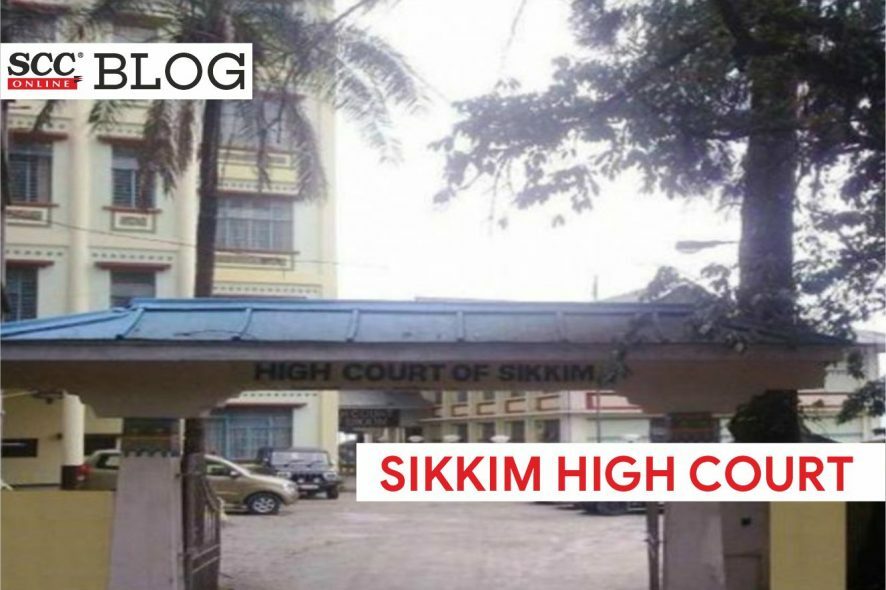Sikkim High Court: In a case wherein, a writ petition under Article 227 of the Constitution was filed to set aside the order dated 7-4-2017, wherein the prayer for execution of arbitral award was rejected, Meenakshi Madan Rai, J.*, opined that by filing a petition under Order XXI Rule 97 of the Civil Procedure Code, 1908 (‘CPC’), the person who was not the party to the arbitral proceedings could seek and obtain relief if the award was not given fairly and upheld the impugned order and accordingly, dismissed the petition.
Background
In the instant case, the petitioner and the respondent were siblings and mutually agreed to divide the properties as per the settlement deed dated 11-6-2013 executed between them at Gangtok.
The settlement deed was prepared by the siblings without the knowledge of Respondent 2, who was the son of Respondent 1. Further, on 13-6-2013, Respondent 2’s sons, Respondents 3 and 4 submitted an application before the Sub-divisional Magistrate for transfer and registration of their building mentioned in the Schedule to the application.
Meanwhile, the agreement titled ‘Memorandum of Family Arrangement’ was entered between the petitioner and the respondent on 24-6-2013. In the agreement, a mediation clause was inserted, according to which all further disputes and differences that arose between the parties, would be referred the Sole Arbitrator.
Subsequently, an arbitral award was passed on 30-1-2014, pursuant to which Civil Execution Case was filed by the petitioner. Further, the Execution Court vide order dated 14-5-2015 held that the possession of the scheduled property be delivered to the petitioner.
Thereafter, on 16-6-2015, Respondents 2, 3 and 4 filed an application under Section 47 read with Order XXI Rule 101 of CPC, Order XXI Rule 97 read with Section 151 of CPC and Section 36 of the Arbitration and Conciliation Act, 1996 (‘the Act’) before the Execution Court. The respondents stated that they had an interest in the property and the arbitration award was passed behind their back and hence the execution order to be stayed until the objection filed by them was disposed of.
The Execution Court rejected the prayer of the arbitral award and declared the arbitral award as nullity.
Thus, the petitioner filed a petition before the present court and contended that Respondent 2-4 had no locus standi to file an application as per Section 47 Explanation II of CPC and also contended that the Order XXI Rule 97 was meant for decree holders and not Respondents 2-4.
Analysis, Law, and Decision
The Court relied on Union of India v. Jagat Ram Trehan and Sons, 1996 SCC OnLine Del 20 and opined that as per Section 47 Explanation II of CPC, a purchaser of property at sale in execution was deemed to be a party to the suit in which the decree had been passed. The Court opined that there was no bar under the law for a third party, whose property interests were adversely affected by sale of the property in execution proceedings to point out that the decree sought to be executed was a nullity. Thus, such person’s right to approach the execution court under Order XXI Rule 97 of CPC who anticipated dispossession could not be rejected.
The Court opined that by filing a petition under Order XXI Rule 97 of CPC, the person who was not the party to the arbitral proceedings could seek and obtain relief if the award was not given fairly. The Court further stated that the word ‘fairly’ was significant as in the present case, the petitioner and the respondent entered into the settlement deed on 11-6-2013, thus, the settlement deed was entered by the parties prior to the objection filed by Respondents 2, 3 and 4 before SDM, but this was not made aware to Respondent 2 or to the SDM.
The Court referred to Bhavan Vaja v. Solanki Hanuji Khodaji Mansang, (1973) 2 SCC 40, wherein it was held that it was the executing court’s duty to find out the true effect of the decree and opined that in the present case it was an admitted fact that Respondent 2 was the son of the petitioner and Respondent 3 and 4 were his sons. Thus, their property rights required consideration to prevent prolonged and multiplicity of litigation.
The Court further stated that the impugned order warranted no interference and accordingly, dismissed the petition.
[Kiran Devi Chouraria v. Jhumar Mal Singhi, 2023 SCC OnLine Sikk 84, decided on 25-8-2023]
*Judgment authored by- Justice Meenakshi Madan Rai
Advocates who appeared in this case :
For the Petitioner: N. Rai, Senior Advocate with Navtara Sarda, Yozan Rai, Tara Devi Chettri and Pradeep Tamang, Advocates;
For the Respondents: Sudhir Prasad, Advocate; A. Moulik, Senior Advocate with Ranjit Prasad, Advocate








